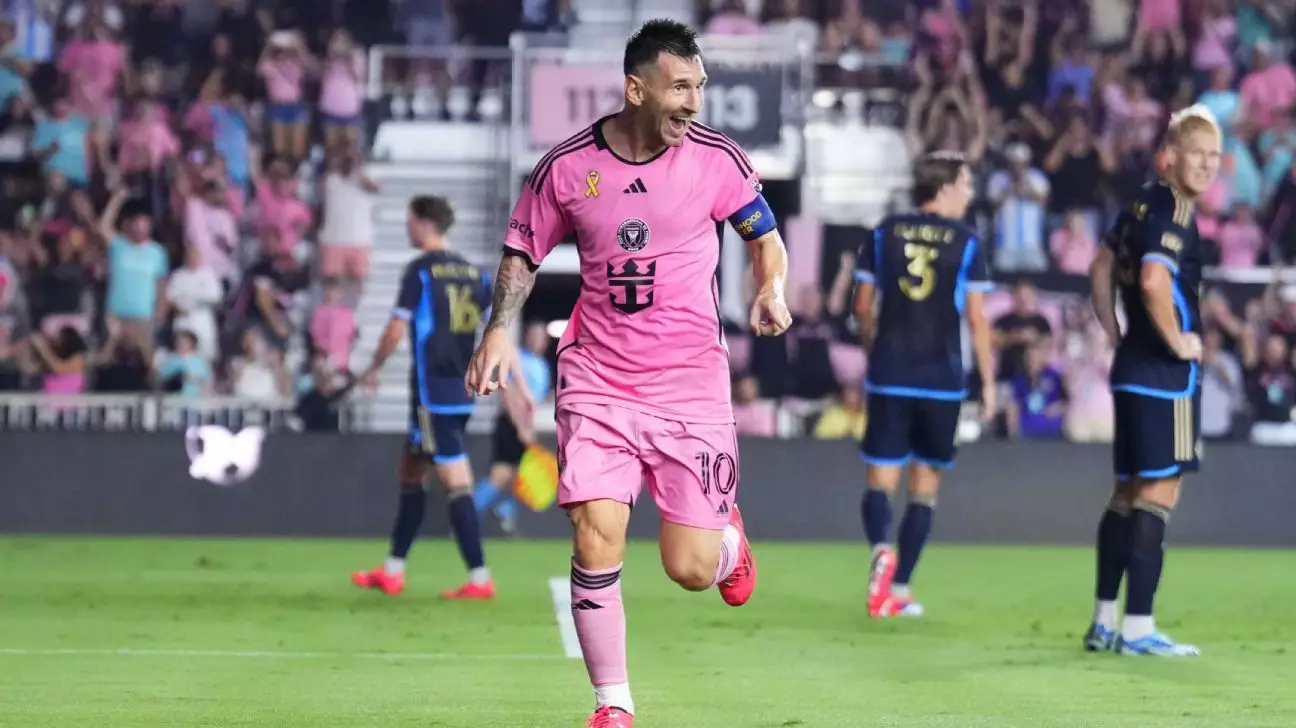Gerardo Martino, the head coach of Inter Miami CF, has officially announced the crucial return of Lionel Messi for the upcoming matches against Atlanta United and New York City FC. This news has ignited enthusiasm among fans and analysts alike, particularly given Messi’s significant impact on the team since joining. However, Martino’s cautious approach indicates a thoughtful strategy rather than mere excitement. Messi’s fitness, after two months sidelined due to a right ankle sprain sustained in the Copa América final, requires meticulous management, especially as the team navigates a busy schedule with three games in the span of a week.
Martino’s insights into Messi’s physical state reflect this careful consideration. Although Messi played a full 105 minutes in his recent comeback match against the Philadelphia Union, it’s evident that the coaching staff is wary of overexerting their star player. Martino’s acknowledgment of Messi’s fatigue—after playing his first full match in quite some time—serves as a reminder that the Argentine maestro is still in the process of regaining his full competitive edge.
A Balancing Act of Strategy and Substitution
The upcoming schedule poses a logistical challenge for Martino. He has highlighted the need to assess Messi’s contributions on a day-to-day basis, suggesting that his participation may vary based on realtime evaluations of player fitness and readiness. This kind of strategic rotation is not just practical; it embodies a deeper understanding of sports management, particularly when handling a player with Messi’s extensive career background.
The coach’s decision-making will be shaped heavily by Tuesday’s training session, where he aims to gauge Messi’s readiness to either start or enter the game as a substitute against Atlanta United. This reflects a broader trend in sports where teams are forced to juggle talent and risk management, creating a nuanced approach to player usage. Given the emphasis on not overexerting their key players, it’s clear that Martino is committed not just to winning but to sustaining the health of his team over the long term.
Interestingly, Messi’s absence during the season has not been devoid of success for Inter Miami. Despite missing ten MLS games and several key matches, the team has impressively maintained its position at the top of the Eastern Conference table. The consistency of the team’s performance illustrates that while Messi is an invaluable asset, it does not solely rely on him. Martino emphasized this by stating that the team opted not to replace Messi individually but instead worked on fostering a collective identity.
This reflection on teamwork over individual brilliance speaks volumes about the type of culture Martino is trying to instill within the squad. It demonstrates that resilience and adaptability might be just as critical to a team’s success, even in the face of losing one of its most illustrious players.
Despite the positive news of Messi and fellow player Luis Suárez returning to the lineup, Inter Miami faces additional hurdles with injuries and suspensions impacting other key players. The absence of David Martínez and Noah Allen due to injuries, along with the suspension of Tomás Avilés and Sergio Busquets due to yellow card accumulation, places additional strain on the roster.
This scenario necessitates a strategic selection process not only in the immediate matches but also as the season progresses. With Martino proclaiming that “wherever he is, he will surely always be missed,” he has laid bare the double-edged sword of Messi’s presence—while his skill undeniable enhances the squad, his absence has highlighted the importance of teamwork.
As Messi prepares to rejoin the fray, the larger narrative revolves around the balance between individual talent and the cohesion of the team. Martino’s navigational approach will be critical as Inter Miami seeks to sustain its momentum atop the standings while managing the complex dynamics that come with stars like Messi. In a sport increasingly characterized by rigorous schedules and tactical intricacies, Inter Miami’s experience will serve as a captivating study in the art of roster management and player utilization moving forward. The coming matches will not only test the team’s depth but will also reveal the efficacy of Martino’s strategy of cautious optimism.

Leave a Reply